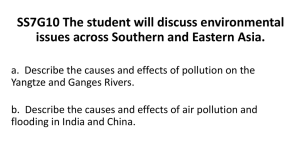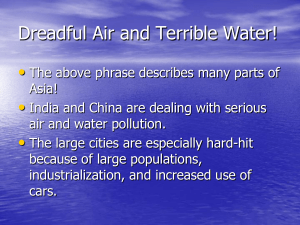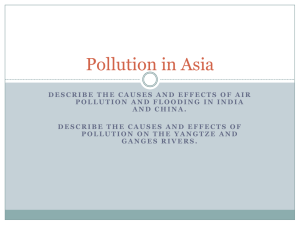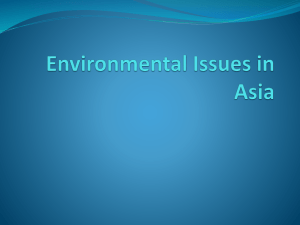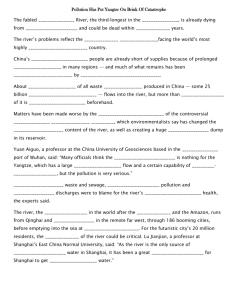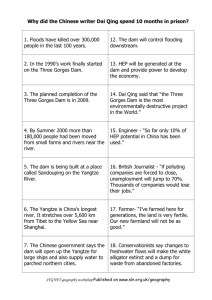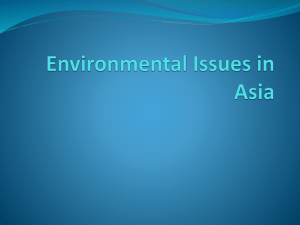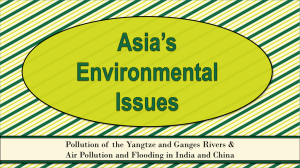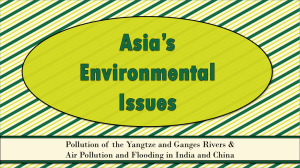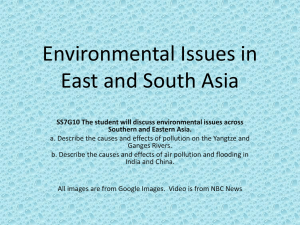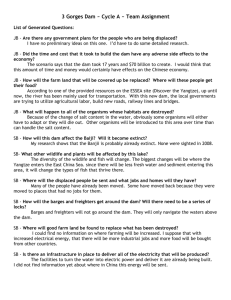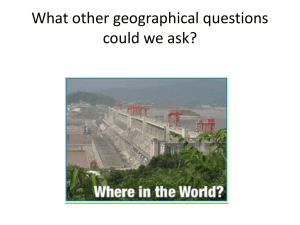SS7G10 The student will discuss environmental issues across South
advertisement
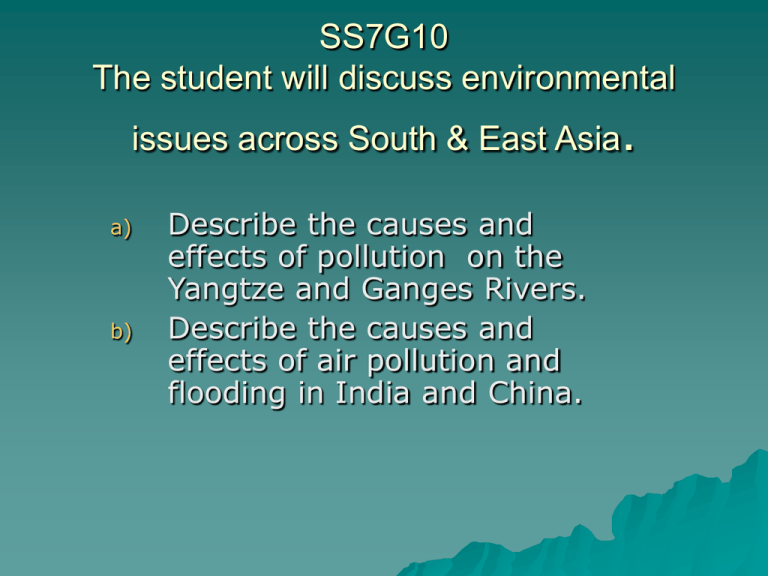
SS7G10 The student will discuss environmental issues across South & East Asia. a) b) Describe the causes and effects of pollution on the Yangtze and Ganges Rivers. Describe the causes and effects of air pollution and flooding in India and China. Essential question We can send a shuttle into space, we can build the [new] Delhi Metro. We can detonate nuclear weapons. So why can't we clean up our rivers? —Rakesh Jaiswal, Founder of Eco Friends He gave up working on his doctorate to fight for the cause of restoring the Ganges River. Ganges River Ganges River Ganges River Yangtze River Yangtze River Yangtze River Air pollution in India • Many cities are being choked by a cocktail of dust and chemical particles in the air. Every day 1.5 billion people are exposed to levels of air pollution well over the safety limits recommended by the. Air World Health Organization pollution actually shortens lives. Three million people die each year from poor air quality. Air pollution in China One of the worst cases of air pollution took place in South Asia during August 2002. A blanket of pollutants nicknamed, "the Brown Cloud" smothered large parts of the region, causing severe problems for the people there. Asian Brown Cloud • Extends over South, Southeast and East Asia • Haze hovers about 4 miles above the surface of the earth & can travel halfway around the globe in less than a week • 75% of the cloud is man-made: forest fires, inefficient cooking fuels (woodstoves), factories, cars Consequences • • • • • 15% reduction of solar radiation Altered monsoon patterns Less rain in India, Pakistan, Afghanistan More rain and flooding in other areas Reduction in photosynthesis (drop in agricultural activity • Damages plants • Causes respiratory ailments Effects on China Beijing Flooding in India • The death toll from this year’s monsoon has already climbed past 800, and now some 1.2 million people have been marooned and about 2 million more affected in the impoverished state of Bihar, where the Kosi river has burst its banks, breached safety embankments and submerged all roads leading to the region. Flooding in India • India’s monsoon season, which lasts from June to September, brings rain vital for the country’s farmers but also massive destruction. Floods, mudslides, collapsing houses and lightning strikes kill hundreds of people every year. Flooding in China Will the completion of the Three Gorges Dam on the upper Yangtze River help with flooding? Pros and Cons of the Three Gorges Dam • Will generate electricityclean & inexpensive • A renewable energy source • Will control flooding • Can store river water in case of a drought • Will improve transportation • Requires the flooding of entire valleys & scenic areas • Disrupts natural seasonal changes in the river • Ecosystems can be destroyed • Natural flooding cleans out silt • The silt that washes downstream provides fertile soil Facts about the Three Gorges Dam “Future Wonder of the World” • When completed it will be the largest hydroelectric dam in the world • Will be more than 1 mile long • Will be almost 600 feet tall • Will cost about 24 billion dollars • 20 years construction time!! More facts • It required the relocation of over 1.5 million people • 13 full-sized cities were leveled by the people who lived in them—brick by brick!! • Over 1300 archaeological sites will be submerged. • It contributed to the extinction of the Yangtze River dolphin. • The weight of the dam & reservoir can actually cause earthquakes. • It took 15 days to fill the reservoir.
